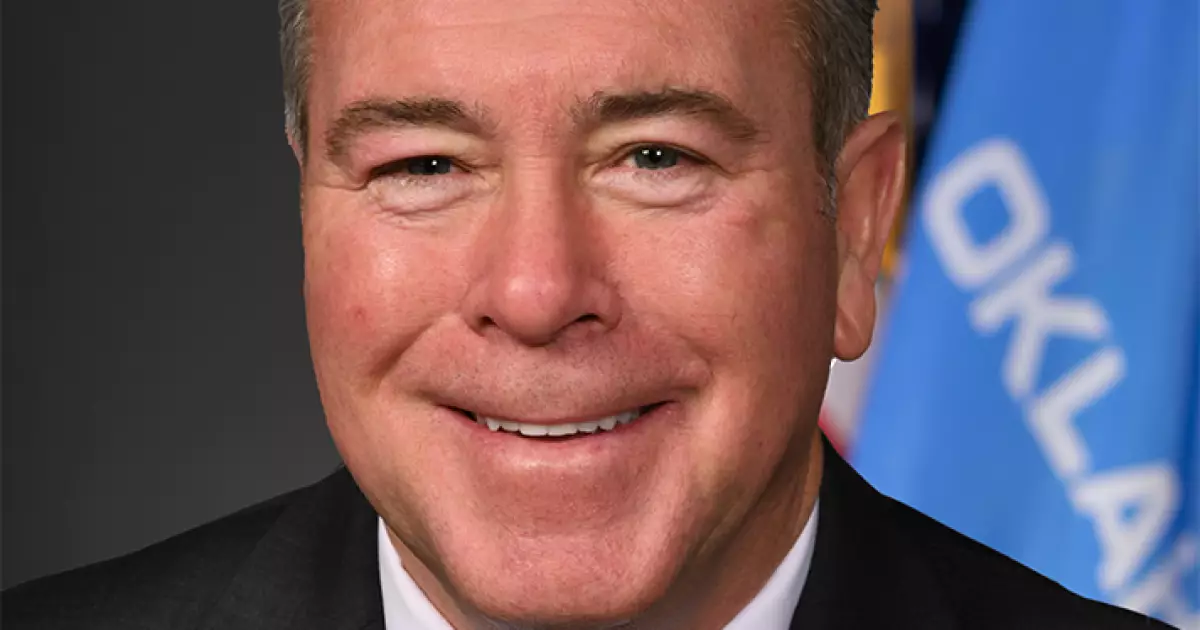In the intricate world of state governance, a significant discord has emerged in Oklahoma between the Republican state treasurer, Todd Russ, and Attorney General Gentner Drummond. This feud, which initially ignited over the defense of controversial laws related to environmental, social, and governance (ESG) issues, now seems to be escalating toward a full-blown political battle. The strife demonstrates a troubling trend within Oklahoma’s political landscape—one where individual ambitions can overshadow the overarching need for cooperative governance. Central to this discord is the tension between constitutional authority, political self-interest, and the interests of Oklahomans.
Russ’s criticism of Drummond carries weight; he is accusing the Attorney General of “crossing constitutional lanes of government,” a phrase that resonates with anyone concerned about the power dynamics in state leadership. Such accusations are not mere political rhetoric; they hint at the potential erosion of checks and balances that citizens so desperately rely on to prevent the concentration of power in a single office. When any elected official, especially one holding the title of Attorney General, seeks to centralize authority, it raises fundamental questions about the health of democracy in the state.
A Constitutional Crisis or Political Theater?
Drummond’s defense of his actions portrays an image of a public servant committed to protecting Oklahoma’s interests, a necessary stance in a political climate that often tilts towards federal overreach. However, his formidable critique of Treasur Russ’s management of Oklahoma’s finances brings into focus the uncomfortable truth that political maneuvers can hide behind the veil of safeguarding state interests. It appears that behind the guise of political posterity, both parties may be playing a game of chess where every move is made not for the benefit of the state but rather to bolster their political careers.
The unhealthy dynamics of this mutual antagonism are alarming. Drummond’s claims of ‘radical leftist agendas’ at play, while intended to rally conservative support, invoke a sense of fear-mongering that distracts from the legitimate concerns surrounding financial investments and environmental responsibilities. In today’s climate, where climate data has become critical for investment, demonizing companies that adhere to ESG criteria not only risks alienating potential allies but also jeopardizes sustainable economic growth. Oklahoma must navigate these waters carefully without alienating itself from the broader economic landscape.
The Illusion of Cooperation
The friction between the treasurer and attorney general also underscores a deeper malaise in Oklahoma’s political apparatus—one in which collaboration gives way to confrontation. This was evident in Drummond’s response to Russ’s claims of mismanagement regarding the Oklahoma Tobacco Settlement Endowment Trust, revealing not a cooperative spirit but instead a battle for dominance over financial stewardship. When one begins to view another as an enemy rather than a collaborator, the potential for compromise and constructive dialogue vanishes.
The trust board’s response to petition against Drummond’s perceived interference exemplifies this lack of trust. The attorney general’s move to intervene appears less about protecting Oklahoma’s funds and more about consolidating authority. Moreover, the notion that a legal judgment should supersede financial expertise raises alarming questions about the governance model the state wishes to adopt. If lawmakers consistently prioritize political theater over sound fiscal management, the long-term repercussions could be dire.
Confronting Financial Realities
The issue extends beyond personal vendettas and political aspirations; it encapsulates a more significant ideological divide within the state concerning how Oklahoma engages with both its resources and its economic partners. By categorically barring firms deemed to support ESG investing, the state risks closing itself off to innovative financial opportunities. Russ’s claim that Drummond has previous ties with investment companies like BlackRock—whether substantiated or not—points to a broader concern about influence and transparency in governance.
The recent failure of a bill that sought to complicate the enforcement of the Energy Discrimination Elimination Act reinforces the perception that legislative processes are being compromised for political gain. The implications of allowing this scenario to unfold are severe, and unless Oklahoma’s leaders can shift from positioning themselves in opposition to one another to finding mutual ground, the state stands to lose more than just its fiscal reputation; it risks stalling its socio-economic progress altogether.
Thus, this growing feud within Oklahoma’s government not only embodies personal ambition but also serves as a reminder of the significant challenges faced by those who bank on short-term political gains over sustained cooperation and governance.


Leave a Reply